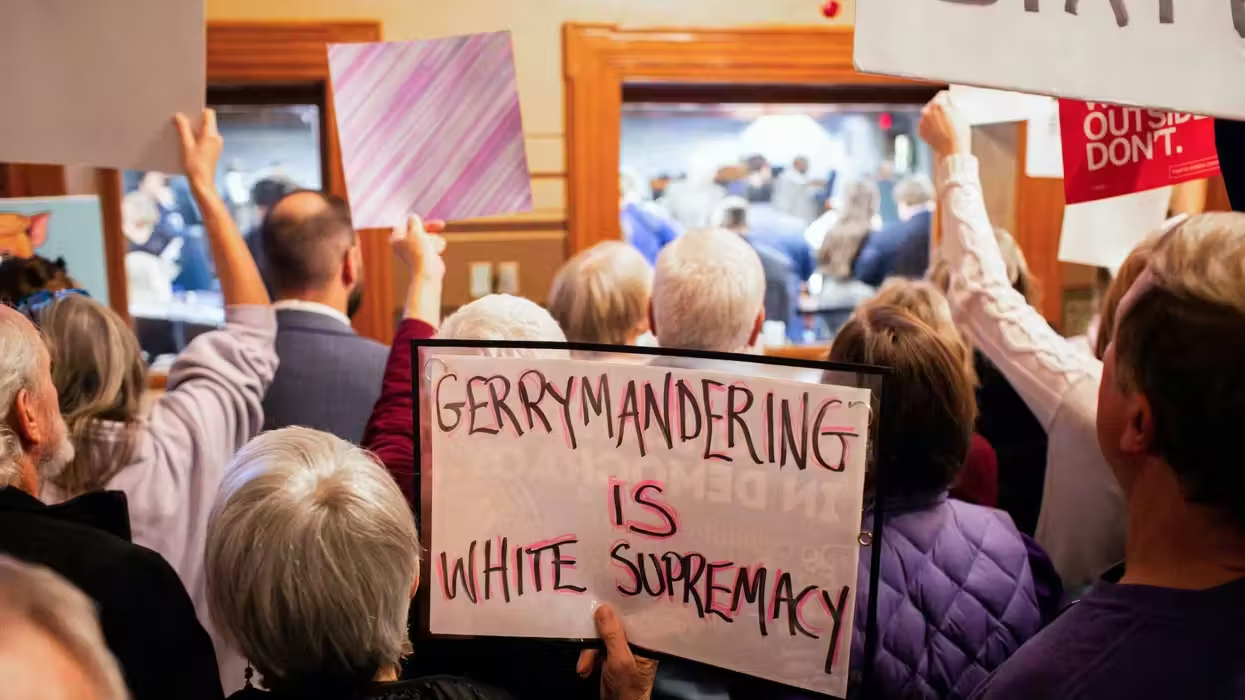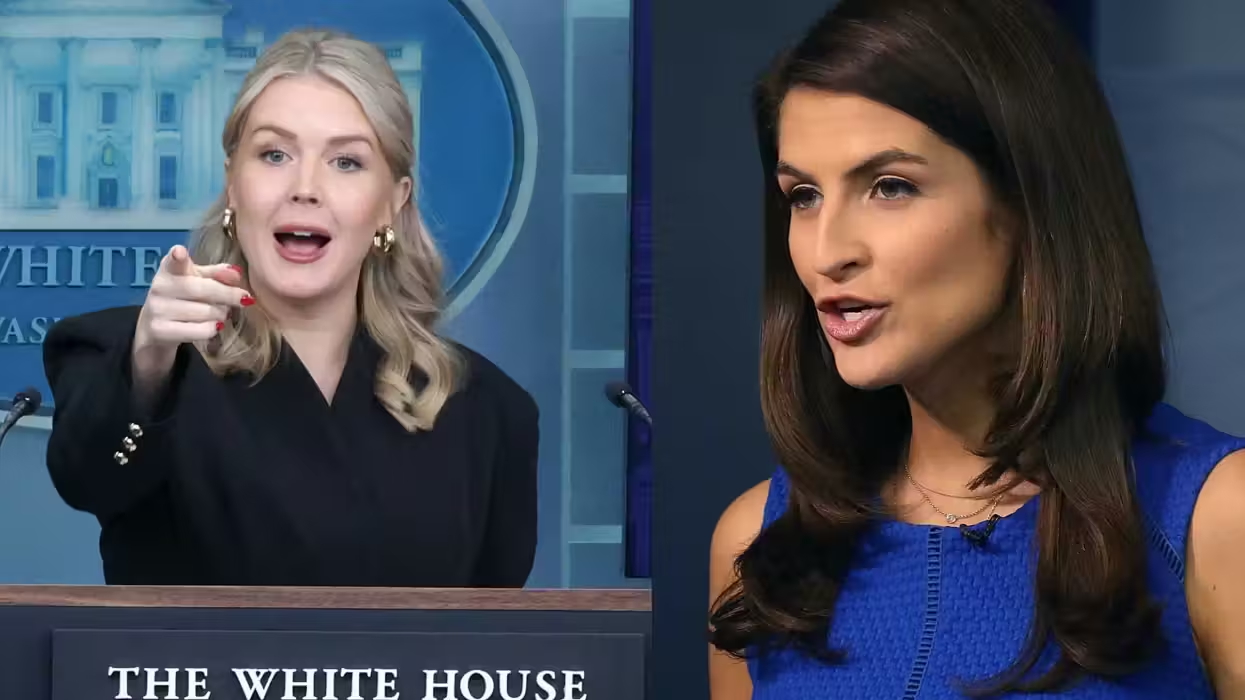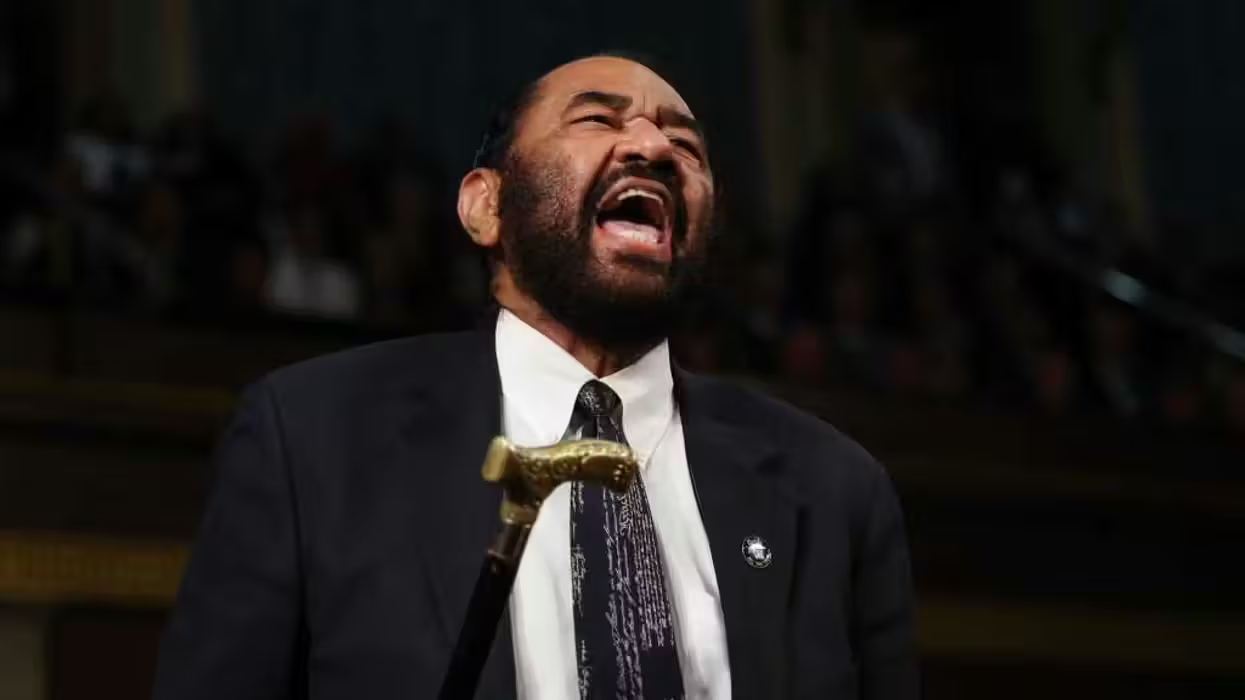
© 2025 Blaze Media LLC. All rights reserved.
This year, the federal judiciary took over national sovereignty. Today, in our post-constitutional society, the most foundational aspect of personal sovereignty – religious conscience and property rights – will be placed in the hands of the Supreme Court as well.
Once again, we have an incontrovertible and foundational right to conscience and property being placed in the palms of one man – Justice Anthony Kennedy – in the Masterpiece Cakeshop case.
To paraphrase Sam Adams in his speech before the Pennsylvania legislature just weeks before the revolution, whether “there shall be left to mankind an asylum on earth for civil and religious liberty” is now not dependent upon tossing off the yoke of the British Crown, but upon the side of the bed on which Anthony Kennedy awoke this morning.
The notion that the entire concept of serving one’s God with one’s own private property in concert with his conscience – the most foundational of all rights – would be placed in the hands of an unelected court is insane. Where in the world is Congress in this debate?
The need for congressional intervention
Our country was founded upon the rights to life, liberty, and property. James Madison referred to religious conscience as “the most sacred of all property.” It is the very impetus for the founding of this country by the Pilgrims, who came here to escape religious coercion at the hands of the Church of England.
Now we are seeing homosexuality being elevated to the status of a national religion. There is no class of persons in this country that have reacted more viscerally and fascistically to those who dissent from their dogma.
Since the Obergefell ruling declared the sexual identity movement a national religion, there has been a brushfire against religious liberty. Whether it’s liberal state governments coercing individuals to violate their conscience with their private property — such as Jack Phillips of Masterpiece Cakeshop in Colorado, the Gifford family in New York, and the Kleins in Oregon — or liberal courts blocking religious liberty laws in conservative states, we no longer abide by the Bill of Rights.
Yet, Congress, with the GOP in full control, has not passed a single bill out of committee to address these problems since the infamous court decision in June 2015.
The time has come for Congress to step in and pass civil rights-style legislation protecting religious liberty in the states. We now have the (unelected branch of the) federal government stepping all over the states and rewriting their district maps and election laws under phony pretenses of civil rights.
It is, thus, only fair that when the most foundational of inalienable rights is under assault that the elected Congress assume its responsibility to protect the individual from tyrannical states or tyrannical courts. Congress must pass federal legislation barring any state or federal branch of government from punishing individuals who refuse to service with their private property acts that violate their conscience.
While the federal government has no right to concoct new rights for protected classes and impose it upon the states — as the Supreme Court did with gay marriage and the growing spectrum of abortion jurisprudence — the elected branch of the federal government has a sacred responsibility to protect the people against states that blatantly infringe on the most fundamental rights.
If a federal court can create a right to unregulated abortion clinics and funding for Planned Parenthood, and force them upon states, then Congress has the power to arrest states from infringing upon conscience and property rights.
The purpose of the federal government is to protect inalienable rights & national and individual sovereignty
The Constitution describes relationships between three entities: the individual, the state, and the federal government. The entire purpose of the federal government was not to add more burdens and tyranny upon the individual but to protect their inalienable rights when states lack the wherewithal or will to do so.
This is why, for example, immigration policy was given over to the federal government – “in order to prevent particular States receiving citizens, and forcing them upon others who would not have received them in any other manner,” in the words of Founding Father Roger Sherman.
Or, in the words of former Justice Joseph Story, to prevent wayward states from endangering the entire union of people, “by an influx of foreigners, hostile to its institutions, ignorant of its powers, and incapable of a due estimate of its privileges.”
This is also why we have the Commerce Clause. The Commerce Clause was never meant to be used as a tool to grow the federal government. Quite the contrary, it was designed as a safeguard against the abuse among states.
As James Madison wrote in a letter to Joseph C. Cabell in 1829, the Commerce Clause “grew out of the abuse of the power by the importing States in taxing the non-importing, and was intended as a negative and preventive provision against injustice among the States themselves, rather than as a power to be used for the positive purposes of the General Government, in which alone, however, the remedial power could be lodged.”
This concept applies doubly to religious liberty. While states have wide latitude to regulate activities within their jurisdictions, a state has no right to violate the preamble of the Declaration, rooted in religious liberty and property rights, the same way they had no right to usurp the liberties and property rights of African-American citizens.
As Justice Story wrote in “Commentaries on the Constitution” (3: § 1870) “The rights of conscience are, indeed, beyond the just reach of any human power. They are given by God, and cannot be encroached upon by human authority.” That includes state governments. And it is clearly the job of the federal government to step in and protect those rights.
At its core, this is why our founders created a federal union – to better secure the blessings of liberty from states that would infringe upon them. As George Washington told a group of Quakers in 1789, “[T]he liberty enjoyed by the people of these states of worshiping Almighty God agreeably to their conscience, is not only among the choicest of their blessings, but also of their rights.”
State coercion to service gay weddings violates the spirit of the Establishment Clause
Whereas our founders feared individual theocratic states coercing individuals to service a particular religion with their private property, they never fathomed a day when the government itself would be run by secularists who force individuals to worship the pagan inquisition. They always envisioned religion as part and parcel of our national fabric.
Alexis de Tocqueville observed that, “The Americans combine the notions of religion and liberty so intimately in their minds, that it is impossible to make them conceive of one without the other.” And that “[F]rom the earliest settlement of the emigrants, politics and religion contracted an alliance which has never been dissolved.” He warned that “[D]espotism can do without faith but liberty cannot.”
However, nobody is asking for government to downright promote the spirit of religion in a voluntary way; we want government to at least refrain from coercing individuals into secularism with their own private businesses. As early as 1988, Reagan explained what we were up against:
"To those who cite the first amendment as reason for excluding God from more and more of our institutions and everyday life, may I just say: The first amendment of the Constitution was not written to protect the people of this country from religious values; it was written to protect religious values from government tyranny."
Irrespective of one’s views on homosexuality or religion, it is undeniable that Judeo-Christian ethos are “deeply rooted in this nation’s history and tradition” – the litmus test for asserting a fundamental right [Washington v. Glucksberg (1997)]. Whereas the concept of redefining marriage, on the other hand, is antithetical to a right deeply rooted in history.
Anthony Kennedy himself conceded in the Windsor case (just two years prior to Obergefell) that “until recent years, . . . marriage between a man and a woman no doubt had been thought of by most people as essential to the very definition of that term and to its role and function throughout the history of civilization.”
Thus, how can a deeply rooted right be forced to yield to a newly concocted one, especially as it relates to private property that doesn’t involve public policy?
If anything, it is, in fact, the homosexual agenda that is violating the Establishment Clause by coercing individuals to violate their conscience with their own private property.
During the House floor debate over the First Amendment on August 20, 1789, James Madison explained the purpose of the Establishment Clause as follows: “Congress should not establish a religion, and enforce the legal observation of it by law, nor compel men to worship God in any manner contrary to their conscience.” [Emphasis added].
Therefore, if the primary concern of Madison was to ensure that the elected branch of the federal government not compel individuals by the force of law to service a particular religion, what would he say about an unelected branch of government compelling individuals to serve paganism in any manner contrary to their conscience?
If we are going to rely on the Supreme Court to protect our First Amendment rights, it will result in the same outcome as our reliance on it to protect the Second Amendment. And in this case, it’s sort of like asking the fox to guard the hen house. It was Justice Kennedy who created this problem; we must not rely on his capricious decision-making to solve it.
Editor's note: This article has been updated to correct the spellings of "Phillips" and "Klein." CR regrets the errors.
Let’s FIGHT BACK together …
… against the mainstream media's biased reporting, selective facts, and outright propaganda. Sign up now for the daily dose of sunlight you need to disinfect the media's lies. It's free!
Want to leave a tip?
We answer to you. Help keep our content free of advertisers and big tech censorship by leaving a tip today.
Want to join the conversation?
Already a subscriber?
Blaze Podcast Host
Daniel Horowitz is the host of “Conservative Review with Daniel Horowitz” and a senior editor for Blaze News.
RMConservative
Daniel Horowitz
Blaze Podcast Host
Daniel Horowitz is the host of “Conservative Review with Daniel Horowitz” and a senior editor for Blaze News.
@RMConservative →more stories
Sign up for the Blaze newsletter
By signing up, you agree to our Privacy Policy and Terms of Use, and agree to receive content that may sometimes include advertisements. You may opt out at any time.
Related Content
© 2025 Blaze Media LLC. All rights reserved.
Get the stories that matter most delivered directly to your inbox.
By signing up, you agree to our Privacy Policy and Terms of Use, and agree to receive content that may sometimes include advertisements. You may opt out at any time.






